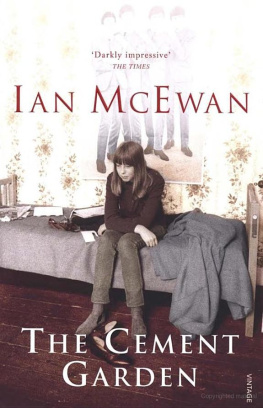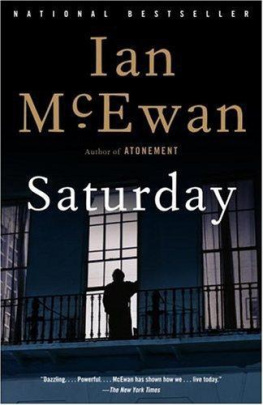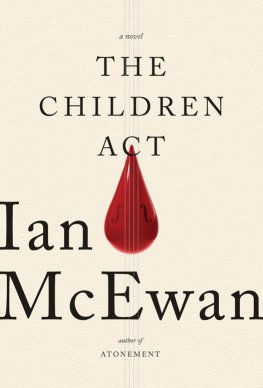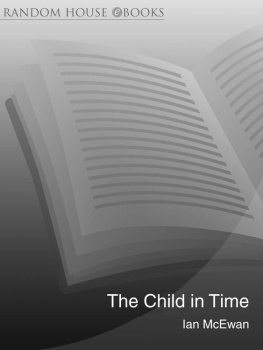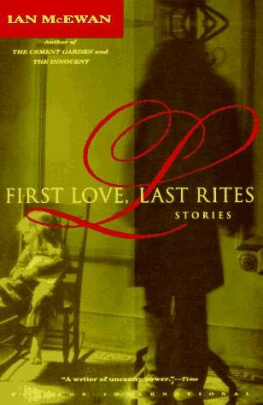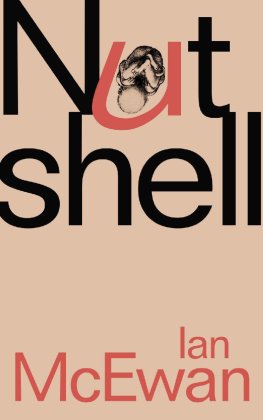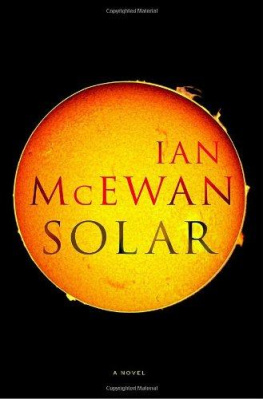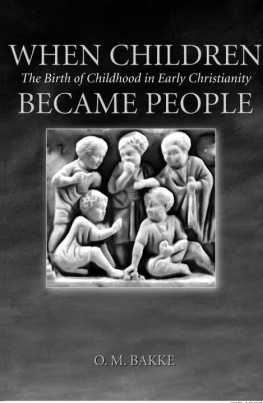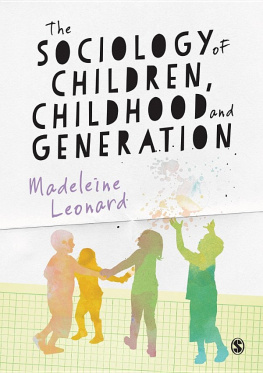IAN McEWAN
The Cement
Garden
VINTAGE BOOKS
London
Contents
This eBook is copyright material and must not be copied, reproduced, transferred, distributed, leased, licensed or publicly performed or used in any way except as specifically permitted in writing by the publishers, as allowed under the terms and conditions under which it was purchased or as strictly permitted by applicable copyright law. Any unauthorised distribution or use of this text may be a direct infringement of the authors and publishers rights and those responsible may be liable in law accordingly.
Version 1.0
Epub ISBN 9781409090052
www.randomhouse.co.uk
Published by Vintage 2006
23 25 26 24
Copyright Ian McEwan 1978
Ian McEwan has asserted his right under the Copyright, Designs and Patents Act, 1988 to be identified as the author of this work
This book is sold subject to the condition that it shall not, by way of trade or otherwise, be lent, resold, hired out, or otherwise circulated without the publishers prior consent in any form of binding or cover other than that in which it is published and without a similar condition including this condition being imposed on the subsequent purchaser
First published in Great Britain in 1978 by Jonathan Cape
First published by Vintage in 1997 Vintage Random House, 20 Vauxhall Bridge Road, London SW1V 2SA
www.vintage-books.co.uk
Addresses for companies within The Random House Group Limited can be found at: www.randomhouse.co.uk/offices.htm
The Random House Group Limited Reg. No. 954009
A CIP catalogue record for this book is available from the British Library
ISBN 9780099755111
The Random House Group Limited supports The Forest Stewardship Council (FSC), the leading international forest certification organisation. All our titles that are printed on Greenpeace approved FSC certified paper carry the FSC logo. Our paper procurement policy can be found at: www.rbooks.co.uk/environment

Printed and bound in Great Britain by CPI Cox & Wyman, Reading, RG1 8EX
T HE C EMENT G ARDEN
Ian McEwan has written two collections of stories, First Love, Last Rites and In Between the Sheets , and eleven novels, The Cement Garden, The Comfort of Strangers, The Child in Time, The Innocent, Black Dogs, The Daydreamer, Enduring Love, Amsterdam , winner of the 1998 Booker Prize, Atonement, Saturday and On Chesil Beach. He won the Booker Prize for Amsterdam in 1998.
ALSO BY IAN McEWAN
First Love, Last Rites
In Between the Sheets
The Comfort of Strangers
The Child in Time
The Innocent
Black Dogs
The Daydreamer
Enduring Love
Amsterdam
Atonement
Saturday
On Chesil Beach
PART ONE
I did not kill my father, but I sometimes felt I had helped him on his way. And but for the fact that it coincided with a landmark in my own physical growth, his death seemed insignificant compared with what followed. My sisters and I talked about him the week after he died, and Sue certainly cried when the ambulance men tucked him up in a bright-red blanket and carried him away. He was a frail, irascible, obsessive man with yellowish hands and face. I am only including the little story of his death to explain how my sisters and I came to have such a large quantity of cement at our disposal.
In the early summer of my fourteenth year a lorry pulled up outside our house. I was sitting on the front step rereading a comic. The driver and another man came towards me. They were covered in a fine, pale dust which gave their faces a ghostly look. They were both whistling shrilly completely different tunes. I stood up and held the comic out of sight. I wished I had been reading the racing page of my fathers paper, or the football results.
Cement? one of them said. I hooked my thumbs into my pockets, moved my weight on to one foot and narrowed my eyes a little. I wanted to say something terse and appropriate, but I was not sure I had heard them right. I left it too long, for the one who had spoken rolled his eyes towards the sky and with his hands on his hips stared past me at the front door. It opened and my father stepped out biting his pipe and holding a clipboard against his hip.
Cement, the man said again, this time with a downward inflection. My father nodded. I folded the comic into my back pocket and followed the three men up the path to the lorry. My father stood on tiptoe to look over the side, took his pipe from his mouth and nodded again. The man who had not yet spoken made a savage chop with his hand. A steel pin flew free and one side of the lorry fell away with a great noise. The tightly packed paper sacks of cement were arranged two deep along the floor of the lorry. My father counted them, looked at his clipboard and said, Fifteen. The two men grunted. I liked this kind of talk. I too said to myself, Fifteen. The men took a sack each on their shoulders and we went back down the path, this time with me in front followed by my father. Round to one side of the house he pointed with the wet stem of his pipe at the coal hole. The men heaved their sacks into the cellar and returned to their lorry for more. My father made a mark on the clipboard with a pencil which dangled from it by a piece of string. He rocked back on his heels, waiting. I leaned against the fence. I did not know what the cement was for and I did not wish to be placed outside this intense community of work by showing ignorance. I counted the sacks too, and when they were all done I stood at my fathers elbow while he signed the delivery note. Then without a word he returned indoors.
That night my parents argued over the bags of cement. My mother, who was a quiet sort of person, was furious. She wanted my father to send the whole lot back. We had just finished supper. While my mother talked my father used a penknife to scrape black shards from the bowl of his pipe on to the food he had barely touched. He knew how to use his pipe against her. She was telling him how little money we had and that Tom would soon be needing new clothes for starting at school. He replaced the pipe between his teeth like a missing section of his own anatomy and interrupted to say it was out of the question sending the bags back and that was the end of it. Having seen for myself the lorry and the heavy sacks and the men who had brought them, I sensed he was right. But how self-important and foolish he looked as he took the thing out of his mouth, held it by its bowl and pointed the black stem at my mother. She became angrier, her voice choked with exasperation. Julie, Sue and I slipped away upstairs to Julies bedroom and closed the door. The rise and fall of our mothers voice reached us through the floor, but the words themselves were lost.
Sue lay on the bed giggling with her knuckles in her mouth while Julie pushed a chair against the door. Together we rapidly stripped Sue of her clothes and when we were pulling down her pants our hands touched. Sue was rather thin. Her skin clung tightly to her rib cage and the hard muscular ridge of her buttocks strangely resembled her shoulder blades. Faint gingerish down grew between her legs. The game was that Julie and I were scientists examining a specimen from outer space. We spoke in clipped Germanic voices as we faced each other across the naked body. From downstairs came the tired, insistent drone of our mothers voice. Julie had a high ridge of cheekbone beneath her eyes which gave her the deep look of some rare wild animal. In the electric light her eyes were black and big. The soft line of her mouth was just broken by two front teeth and she had to pout a little to conceal her smile. I longed to examine my older sister but the game did not allow for that.
Next page
